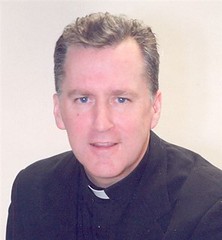
The lamp of the body is the eye. If your eye is sound, your whole body will be filled with light; but if your eye is bad, your whole body will be in darkness. And if the light in you is darkness, how great will the darkness be. “ (Matthew 6, 19-23)
When Jesus speaks of the eye, he is speaking of the conscience, by which we are able to hear the voice of God and to discern good from evil. St. Thomas More followed the voice of his conscience which brought him onto conflict with King Henry VIII who had him beheaded for his refusal to approve of his divorce and to take an Oath of Supremacy recognizing Henry as the head of the Church in England.
The Second Vatican Council document Gaudium et Spes says,
“Deep within his conscience man discovers a law which he has not laid upon himself but which he must obey. Its voice, ever calling him to love and to do what is good and to avoid evil, sounds in his heart at the right moment. . . . For man has in his heart a law inscribed by God. . . . His conscience is man's most secret core and his sanctuary. There he is alone with God whose voice echoes in his depths." (GS 16)
A human being must never be forced to act against his conscience, especially in religious matters. The First Amendment to the United States Constitution protects this fundamental human right.
The relativistic notion is false that “What's true for you is true for you, but it may not be true for me. This point became clear in the mind of Pope Benedict XVI when participating in a debate on the justifying power of the subjective conscience. Someone objected to the idea by saying that if were true that we could expect to see the Nazi SS in heaven since they carried out their atrocities with fanatic conviction and complete certainty of conscience. Pope Benedict came to the conclusion that the theory that a person could be justified merely by following his subjective conscience must be false.
A person can't be sure he's right just because he has a firm subjective conviction, lacks doubt or has no guilt feelings. A person is responsible for the evil he commits with a certain conscience when he "takes little trouble to find out what is true and good, or when conscience is by degrees almost blinded through the habit of committing sin." (GS 16) People can become blind to what is true and good if they are ignorant about Christ and his Gospel, by giving in to temptation, scandal, the rejection of the teaching authority of the Church and a lack of true repentance and charity.
We have an obligation to form our consciences correctly by meditating on the Word of God and the teaching of the Church. It’s not an easy task since we’re prone to pride, and tempted to prefer our own judgments and reject even legitimate authority.
The task of educating our consciences doesn’t end with religious instruction. It’s a lifelong task, but the education of children in this regard is particularly important. A child who has not received adequate religious training is like a ship set in the ocean without a compass. Christ promised that the truth would set us free. The proper education of the conscience leads to true freedom and peace of mind.
Conscience and Truth by Joseph Cardinal Ratzinger presented at the 10th Workshop for Bishops February 1991 Dallas, Texas
Moral Conscience from the Catechism of the Catholic Church


